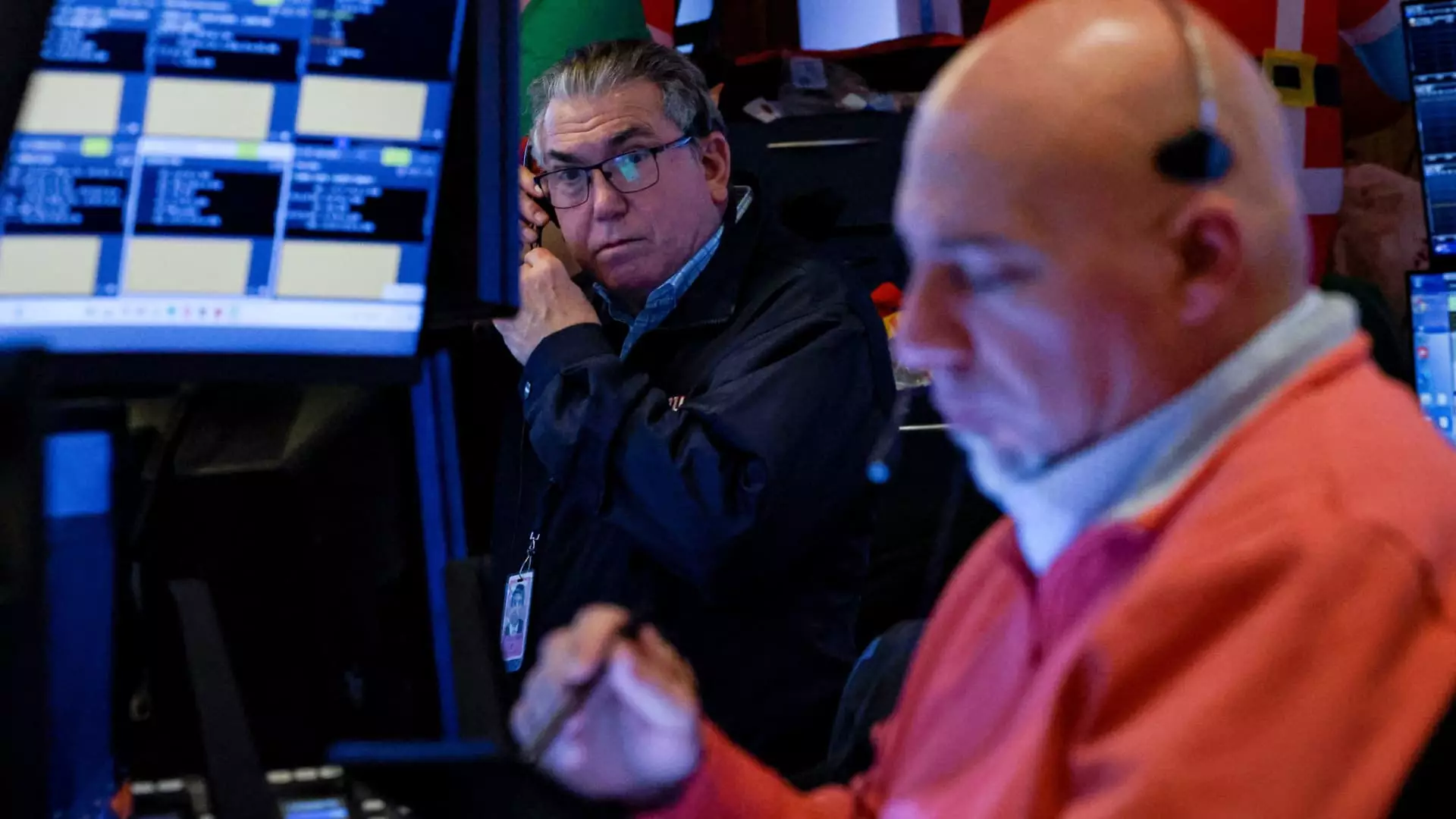As the week unfolds, European markets are bracing for a challenging opening as traders and investors prepare for pivotal decisions from central banks. The leading indices across the continent are signaling a concerning trend, with projections indicating a decline. The U.K.’s FTSE 100 is anticipated to start 18 points lower at 8,240, while Germany’s DAX is expected to drop by 22 points, landing at 20,291. Likewise, France’s CAC 40 is set to decrease by 12 points to 7,342, and Italy’s FTSE MIB is predicted to fall significantly, down 129 points to 34,618. These figures, provided by IG, highlight a general unease as economic stakeholders await significant monetary policy announcements.
This week is particularly critical in the global financial landscape as the U.S. Federal Reserve initiates its final two-day policy meeting on Tuesday. Investors are keenly focused on the Fed’s monetary policy update expected on December 18, with an overwhelming 95% of traders betting on a quarter-point interest rate cut, according to the CME Group’s Fed Watch tool. Such a decision would carry substantial implications not only for the U.S. economy but also for global markets. The subsequent press conference led by Chair Jerome Powell is anticipated to provide critical insights into the Fed’s future direction, which could drastically influence market sentiment in the days to come.
Meanwhile, the outlook from the Bank of England appears less dramatic, with a slimmer chance of a prospective rate cut surfacing amid expectations of their meeting on Thursday. As central banks navigate these turbulent waters, their decisions will undoubtedly shape economic conversations and market movements both in the U.K. and beyond.
Adding to the market’s complexities, the political landscape in Europe is also evolving. A recent confidence vote loss for German Chancellor Olaf Scholz in parliament has ignited discussions regarding a potential snap election, now scheduled for February 23. This political maneuver, largely seen as a move orchestrated by Scholz for the possibility of fresh elections after the collapse of his coalition government, creates further uncertainty. Such political shifts could disrupt market stability, adding layers of unpredictability to investor strategies.
On the other side of the world, overnight trading in the Asia-Pacific region exhibited mixed results as investors digested these developments. In the U.S., stock futures saw subtle declines, reflecting a cautious approach as traders brace for the repercussions of the upcoming central bank announcements. Additionally, the European economic landscape is set to reveal crucial data on Tuesday, with unemployment statistics from the U.K. and Germany’s Ifo business climate and economic sentiment index on the docket. However, notable earnings reports are absent this week, leaving economic data to drive market movements.
As European markets prepare for a negative opening amid significant central bank decisions and a shifting political atmosphere, the upcoming days promise to be pivotal. Investors must remain vigilant as the implications of these monetary policies and political maneuvers unfold, shaping the broader economic landscape and market dynamics in the near future. With all eyes on the Fed and the Bank of England, market participants are in for a period of heightened scrutiny and speculation.

